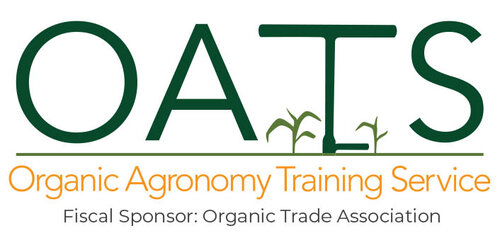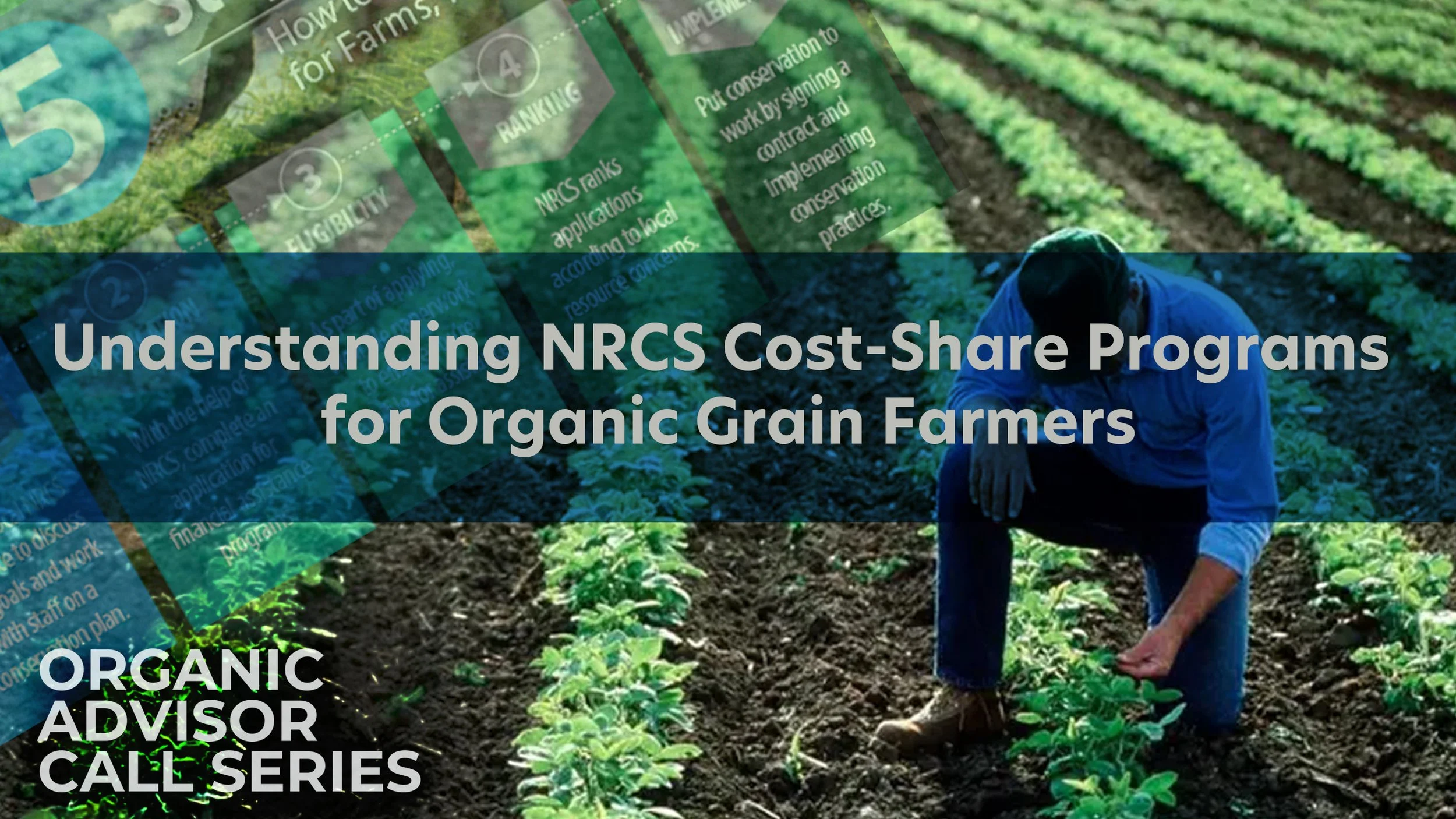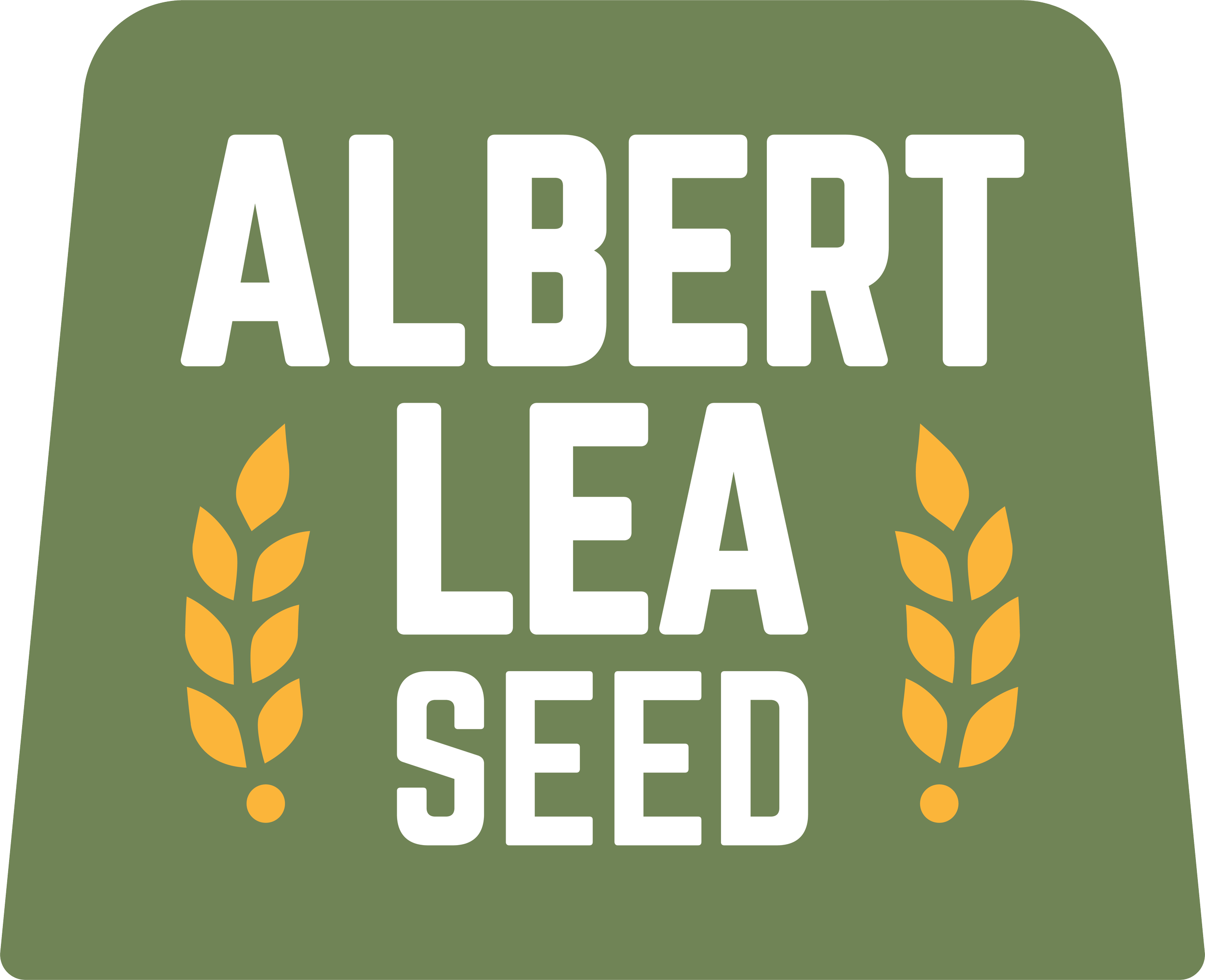Understanding NRCS Cost-Share Programs for Organic Grain Farmers
CCA CEU's are available for this episode
Crop Management CEUs: 1
NRCS cost-share programs can provide funding and insight to improve organic farms. These programs can be confusing to understand and navigate for both organic farmers and advisors. With recent reductions in staffing levels across the agency, NRCS staff are less able to provide much of the technical support to help farmers apply for these programs. This episode will clearly break down the programs and practices that are most applicable for organic grain farms. We’ll talk through individual programs and discuss how the cost-share money can help farmers, but even more, how the deeper value is in the process of making high-level plans that help advisors and farmers understand farm operations better. These conservation plans can pay dividends long after the cost-share money has been paid out.
Writing conservation plans is also a good opportunity for advisors to offer additional services and value to their farmers. We’ll talk through the newly updated process of becoming an accredited Technical Service Provider.
Our guest, Thomas Manley, is an organic advisor, farmer and advocate at Marbleseed, and works in a contribution agreement with NRCS providing conservation planning support and training for staff and producers.
This is a free Zoom Event!
In this call, Thomas Manley, organic conservation specialist for WI NRCS and the climate conservation specialist at Marbleseed, breaks down the NRCS programs most relevant to organic grain farms, including EQIP, CSP, and the Organic Initiative. He and Sam walk through how conservation planning works, how advisors can add value by becoming Technical Service Providers, and why the planning process itself often yields benefits beyond the cost-share dollars.
Here are the resource links provided during the call:
SPEAKERS
Thomas Manley
Thomas Manley is the WI state organic conservation specialist for WI NRCS and the climate conservation specialist at Marbleseed. Thomas supports technical service providers in navigating NRCS organic programs and trains NRCS staff. Thomas also farms with his wife, as they work to develop a permanent, woody perennial-based system with alley cropping and grazing.
Sam Oschwald Tilton, Facilitator
“I have worked with organic farmers all over the US and Canada to understand production systems and solve weed management issues. This past season, on farms and in winter conferences, I spoke with as many farmers and ag professionals as I could to understand the questions that organic producers have, and the experts that they’d like to learn from. Those conversations helped me identify the topics and guests for this series. I am excited to bring together a wide range of farmers and ag professionals from many backgrounds, all of whom have an experienced perspective to share. In each call I look forward to having an intelligent conversation with the guest that introduces the topic to those who are unfamiliar and also dives deep to bring further understanding and clear tips to listeners. After the conversation, we’ll take questions from listeners, so that they can communicate directly with each guest to get the answers that they need. My goal for this call series is to provide crucial information on topics facing organic and transition-curious farmers, in an approachable conversation that listeners can easily listen to during their lunch hour.”
“NRCS cost-share programs, and the planning process to apply for them, can be crucial for organic grain farmers - join us as we speak with an expert to learn what you need to know to help the producers you work with.”
This event is supported through the United States Department of Agriculture (USDA) Transition to Organic Partnership Program (TOPP).
TOPP is a program of the USDA Organic Transition Initiative and is administered by the USDA Agricultural Marketing Service (AMS) National Organic Program (NOP).





